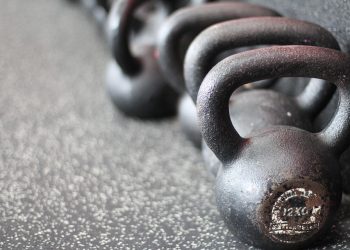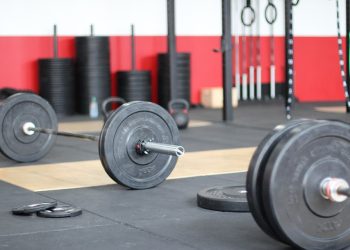Weight Loss Science: Debunking Myths (37) to Achieve Sustainable Results
Losing weight is a journey many embark on, filled with information – some helpful, some misleading. Separating fact from fiction is crucial for achieving sustainable weight loss and improving overall health. Let’s debunk some common weight loss myths and replace them with evidence-based strategies.
Myth 1: Starvation Diets are the Fastest Way to Lose Weight
Reality: Severely restricting calories might lead to rapid initial weight loss, but it’s unsustainable and often harmful. Starvation mode can actually slow down your metabolism as your body conserves energy. This can lead to muscle loss and a rebound effect when you resume normal eating. Focus on a moderate calorie deficit (500-750 calories less than your daily needs) for gradual and lasting results. Find your maintenance calories using an online calculator and subtract from there.
Myth 2: All Calories are Created Equal
Reality: While calorie balance is important, the source of those calories matters significantly. 100 calories from processed sugar have a vastly different impact on your body than 100 calories from lean protein or complex carbohydrates. Empty calories provide little nutritional value and can spike blood sugar levels, leading to cravings and fat storage. Prioritize nutrient-dense foods that provide sustained energy and support overall health.
Myth 3: You Can Target Fat Loss in Specific Areas (Spot Reduction)
Reality: Spot reduction is a myth. You can’t specifically target fat loss in areas like your stomach or thighs through targeted exercises. When you lose weight, your body loses fat proportionally from all over. While exercises like crunches can strengthen abdominal muscles, they won’t eliminate belly fat. Focus on overall fat loss through diet and exercise, and you’ll gradually see results in all areas.
Myth 4: Carbs are the Enemy
Reality: Not all carbohydrates are created equal. Complex carbohydrates, like whole grains, fruits, and vegetables, are essential for energy, fiber, and vital nutrients. Simple carbohydrates, like processed sugars and white bread, should be limited. Choose complex carbs over simple carbs to stay satiated and maintain stable blood sugar levels. Low-carb diets can be effective for some, but they’re not a magic bullet and might not be sustainable long-term.
Myth 5: Skipping Meals Helps You Lose Weight
Reality: Skipping meals often leads to overeating later in the day. When you’re overly hungry, you’re more likely to make unhealthy food choices and consume more calories than you would have if you had eaten regular meals. Consistent meal timing helps regulate blood sugar levels and prevents extreme hunger, making it easier to manage your calorie intake.
Myth 6: Eating Late at Night Causes Weight Gain
Reality: It’s not the time of day you eat, but the total calories you consume that matters most. Eating late at night won’t automatically lead to weight gain if you stay within your daily calorie goals. However, late-night snacking often involves unhealthy, high-calorie foods. If you’re hungry at night, choose a light, nutritious snack like Greek yogurt or a handful of nuts.
Myth 7: You Need to Detox to Lose Weight
Reality: Your body has its own natural detoxification system – the liver and kidneys. Detox diets and products are often unnecessary and can even be harmful. They rarely lead to sustainable weight loss, as they typically involve extreme calorie restriction. Focus on supporting your body’s natural detoxification processes by eating a healthy diet, staying hydrated, and getting enough sleep.
Myth 8: Weight Loss Supplements are a Miracle Cure
Reality: Most weight loss supplements lack scientific evidence to support their claims. Many contain stimulants that can be harmful, and some may interact with medications. The best approach to weight loss is a healthy diet and regular exercise, not relying on unproven supplements. Consult with a doctor before taking any weight loss supplements.
Myth 9: More Exercise is Always Better
Reality: While regular exercise is crucial for weight loss and overall health, overtraining can be counterproductive. Excessive exercise can lead to injuries, fatigue, and burnout. It can also increase cortisol levels, which can contribute to fat storage. Aim for a balanced exercise routine that includes both cardio and strength training, and allow for adequate rest and recovery.
Myth 10: Cardio is the Only Exercise Needed for Weight Loss
Reality: While cardio burns calories, strength training is essential for building muscle mass. Muscle tissue burns more calories than fat tissue, even at rest. Strength training also helps improve your metabolism and body composition. Incorporate both cardio and strength training into your workout routine for optimal results.
Myth 11: You Need to Spend Hours at the Gym to See Results
Reality: You don’t need to spend hours at the gym to get fit. Even short, intense workouts can be effective. High-intensity interval training (HIIT) is a great way to burn calories and improve cardiovascular health in a short amount of time. Consistency is key – even 30 minutes of exercise most days of the week can make a significant difference.
Myth 12: You Have to Eliminate Entire Food Groups to Lose Weight
Reality: Eliminating entire food groups is usually unnecessary and can lead to nutrient deficiencies. A balanced diet that includes all food groups in moderation is more sustainable and enjoyable. Unless you have a specific allergy or intolerance, there’s no need to completely cut out foods like dairy or grains.
Myth 13: Fruit is Bad for Weight Loss Because It’s High in Sugar
Reality: Fruit is a healthy and nutritious food that should be included in a balanced diet. While fruit does contain sugar, it also provides fiber, vitamins, minerals, and antioxidants. The fiber in fruit helps slow down the absorption of sugar, preventing blood sugar spikes. Choose whole fruits over fruit juice, which is often high in added sugar.
Myth 14: You Can Eat Whatever You Want as Long as You Exercise
Reality: While exercise helps burn calories, it’s difficult to out-exercise a bad diet. You can easily consume more calories than you burn through exercise. Diet plays a more significant role in weight loss than exercise. Focus on eating a healthy diet and using exercise to complement your efforts.
Myth 15: All Natural Foods are Healthy
Reality: The term “natural” doesn’t automatically equate to healthy. Many processed foods are labeled as natural, but they can still be high in sugar, salt, and unhealthy fats. Read food labels carefully and focus on whole, unprocessed foods.
Myth 16: Eating Fat Makes You Fat
Reality: Healthy fats are essential for overall health and can even aid in weight loss. Unsaturated fats, like those found in avocados, nuts, and olive oil, are beneficial for heart health and can help you feel full and satisfied. Avoid unhealthy saturated and trans fats, which are found in processed foods and fatty meats.
Myth 17: You Need to Drink Gallons of Water to Lose Weight
Reality: While staying hydrated is important, you don’t need to drink excessive amounts of water to lose weight. Drinking water can help you feel full and may slightly boost your metabolism, but it’s not a magic bullet. Aim for 8 glasses of water per day, and adjust your intake based on your activity level and climate.
Myth 18: Green Tea is a Weight Loss Miracle
Reality: Green tea contains antioxidants and may slightly boost metabolism, but it’s not a significant weight loss aid. It can be a healthy beverage choice, but it won’t magically melt away fat. Combine green tea with a healthy diet and exercise for best results.
Myth 19: Weight Loss is Linear
Reality: Weight loss is rarely a straight line. You’ll likely experience fluctuations in your weight due to factors like water retention, hormonal changes, and bowel movements. Don’t get discouraged by occasional setbacks. Focus on the overall trend and celebrate your progress.
Myth 20: You Need Expensive Equipment to Work Out Effectively
Reality: You don’t need a fancy gym membership or expensive equipment to get a good workout. Bodyweight exercises, like push-ups, squats, and lunges, can be highly effective. You can also use inexpensive equipment like resistance bands and dumbbells. The most important thing is to find an exercise routine that you enjoy and can stick with.
Myth 21: Processed Foods Should Be Completely Avoided
Reality: While a diet rich in whole, unprocessed foods is ideal, it’s unrealistic to completely avoid processed foods. Some minimally processed foods, like canned beans or frozen vegetables, can be convenient and nutritious. The key is to choose processed foods wisely and limit your intake of highly processed foods that are high in sugar, salt, and unhealthy fats. Focus on reading the nutritional labels to make informed choices.
Myth 22: If You Don’t See Results Quickly, the Diet Doesn’t Work
Reality: Sustainable weight loss takes time and effort. Don’t expect to see dramatic results overnight. It’s important to be patient and consistent with your diet and exercise routine. It generally takes several weeks or even months to see noticeable changes. Compare yourself to your starting point, not to unrealistic ideals.
Myth 23: You Should Never Eat Your Favorite Foods
Reality: Restricting yourself from your favorite foods can lead to cravings and binge eating. It’s okay to indulge in your favorite treats occasionally, as long as you do so in moderation. A flexible diet that allows for some indulgences is more sustainable than a restrictive diet that feels like punishment. Practice mindful eating to enjoy your favorite foods without overdoing it.
Myth 24: You Must Count Every Calorie Meticulously
Reality: While calorie awareness is beneficial, obsessively counting every calorie can be stressful and unsustainable for the long term. Focus on eating whole, unprocessed foods and practicing portion control. If you find calorie counting helpful, use it as a tool to understand your eating habits, but don’t let it consume you.
Myth 25: Fast Food is Always a Bad Choice
Reality: While many fast-food options are unhealthy, some healthier choices are available. Look for grilled chicken salads, wraps, or sandwiches with lean protein and lots of vegetables. Avoid fried foods, sugary drinks, and oversized portions. Check the nutritional information online to make informed choices.
Myth 26: Once You Reach Your Goal Weight, You Can Stop Exercising
Reality: Maintaining a healthy weight requires ongoing effort. Once you reach your goal weight, you need to continue eating a healthy diet and exercising regularly to prevent weight regain. Consider lifestyle change.
Myth 27: Everyone Should Follow the Same Diet
Reality: There is no one-size-fits-all diet. What works for one person may not work for another. Factors like genetics, metabolism, lifestyle, and preferences play a role in determining the best diet for you. Experiment with different approaches and find what works best for your body and your needs. Working with a registered dietitian or nutritionist can help to create personalized plan.
Myth 28: All Dairy Products Should Be Avoided.
Reality: For those without lactose intolerance or dairy allergies, dairy products can be part of a healthy diet. They’re a good source of protein, calcium, and vitamin D. Choose low-fat or fat-free options to reduce your calorie intake. Dairy alternatives like almond or soy milk are also available for those who can’t consume dairy.
Myth 29: Weight Loss Drinks Are the Key to Quick Weight Loss
Reality: Weight loss teas, smoothies or other drinks are not a key to quick weight loss. It is essential to consider a healthy diet and exercise.
Myth 30: If your family is overweight, you will be too.
Reality: Your lifestyle plays a role in your health. You can maintain your health with exercises and nutritious foods despite your family history.
Myth 31: Weight loss is only about appearance.
Reality: Weight loss is about improving health. Being overweight can lead to health problems like heart diseases, diabetes and cancers.
Myth 32: The scale is the only way to measure success.
Reality: There are other ways to measure your progress. You can track your waist measurements, energy levels, and overall well-being.
Myth 33: Losing weight is impossible after a certain age.
Reality: It may be more challenging to lose weight as you age, but it’s not impossible. Your metabolism may slow down, and you may lose muscle mass, but you can still lose weight by making lifestyle changes.
Myth 34: Snacking is always bad.
Reality: Healthy snacks can help prevent overeating at meals and keep your energy levels stable. Choose snacks like fruits, vegetables, nuts, or yogurt.
Myth 35: You can lose weight by just dieting, not exercising.
Reality: While you can lose weight by dieting, exercise is essential for overall health and fitness. Exercise helps burn calories, build muscle, and improve your cardiovascular health.
Myth 36: You have to deprive yourself to lose weight.
Reality: Weight loss should not be about deprivation. It’s about making healthier choices and finding a balance that works for you. You can still enjoy your favorite foods in moderation.
Myth 37: Once you start losing weight, it will be easy.
Reality: Weight loss can be challenging, and there will be times when you feel like giving up. It’s important to be patient and persistent and to celebrate your successes along the way.
Conclusion
Sustainable weight loss is a journey that requires patience, consistency, and a commitment to healthy habits. By debunking these common myths and embracing evidence-based strategies, you can achieve your weight loss goals and improve your overall health and well-being. Remember to focus on a balanced diet, regular exercise, and a positive mindset. Consult with healthcare professionals for personalized advice and support.
Frequently Asked Questions (FAQs)
Q: How many calories should I eat to lose weight?
A: The number of calories you need to eat to lose weight depends on factors like your age, sex, activity level, and current weight. A general guideline is to create a calorie deficit of 500-750 calories per day. Use an online calorie calculator or consult with a registered dietitian to determine your individual needs.
Q: What is the best type of exercise for weight loss?
A: The best type of exercise for weight loss is a combination of cardio and strength training. Cardio burns calories, while strength training builds muscle mass, which helps boost your metabolism. Choose activities you enjoy and can stick with consistently.
Q: How long does it take to see results from weight loss?
A: The time it takes to see results from weight loss varies depending on individual factors like your starting weight, diet, and exercise routine. It typically takes several weeks or months to see noticeable changes. Be patient and consistent, and focus on the overall trend rather than short-term fluctuations.
Q: Is it okay to eat snacks when trying to lose weight?
A: Yes, healthy snacks can be part of a weight loss plan. Choose snacks that are high in protein and fiber, such as fruits, vegetables, nuts, or yogurt. Snacks can help prevent overeating at meals and keep your energy levels stable.
Q: What are some healthy and sustainable diet tips?
A: Here are some healthy and sustainable diet tips:
- Focus on whole, unprocessed foods.
- Eat plenty of fruits, vegetables, and lean protein.
- Limit your intake of processed foods, sugary drinks, and unhealthy fats.
- Practice portion control.
- Stay hydrated.
- Listen to your body’s hunger and fullness cues.
- Allow yourself occasional indulgences.
Q: Should I weigh myself every day?
A: Weighing yourself every day can be helpful for some people, but it can also be stressful for others. If you find that daily weigh-ins cause anxiety, weigh yourself less frequently, such as once a week or once a month. Focus on the overall trend rather than daily fluctuations.
Q: How can I stay motivated during weight loss?
A: Here are some tips for staying motivated during weight loss:
- Set realistic goals.
- Track your progress.
- Find a support system.
- Reward yourself for achieving milestones.
- Focus on the positive changes you’re making in your health and well-being.
- Remember your reasons for wanting to lose weight.
Q: When should I consult a doctor or registered dietitian about weight loss?
A: Consult a doctor or registered dietitian if you have any underlying health conditions, are taking medications, or have questions about the best approach to weight loss for your individual needs. They can provide personalized advice and support to help you achieve your goals safely and effectively.












